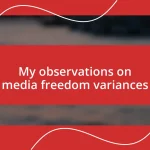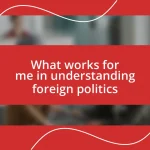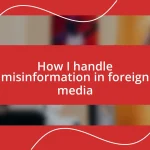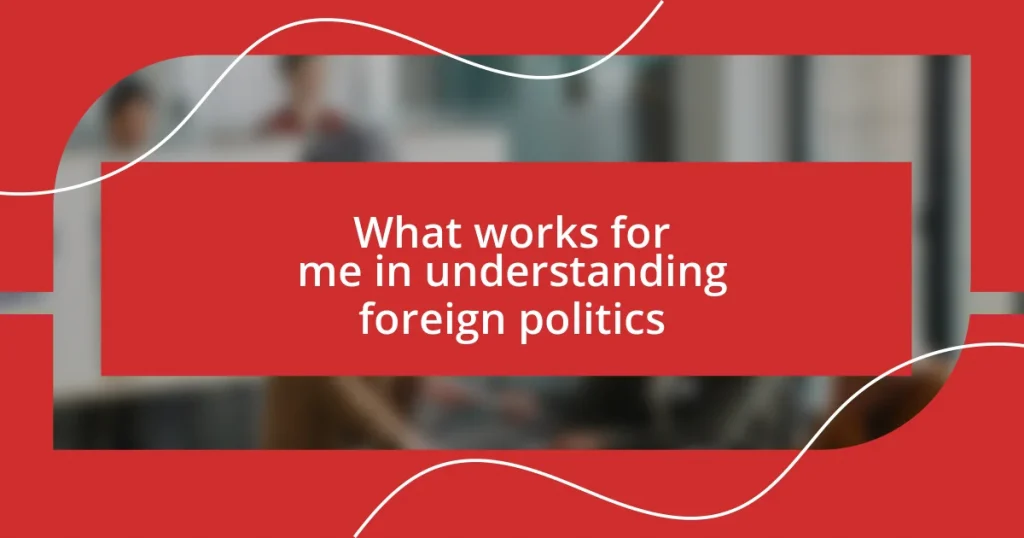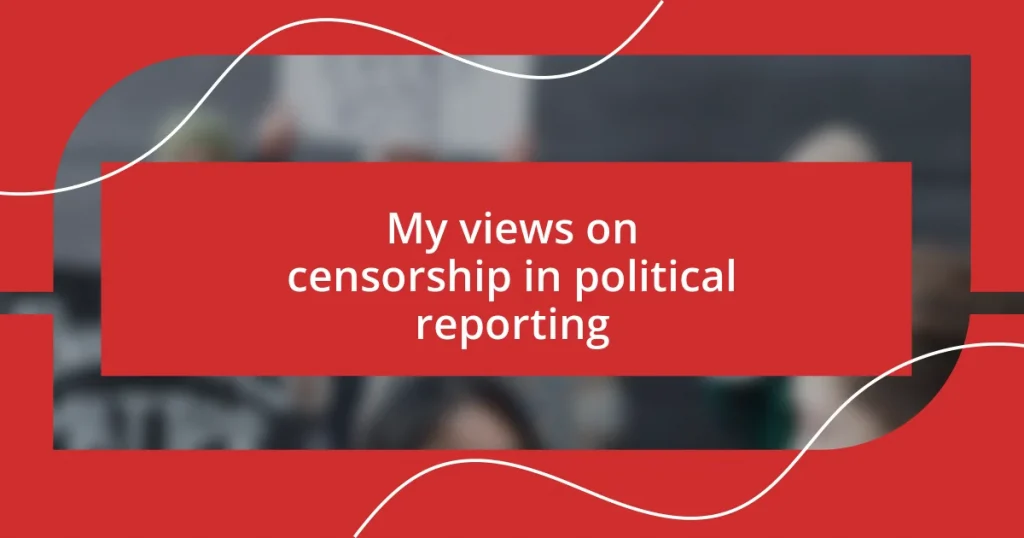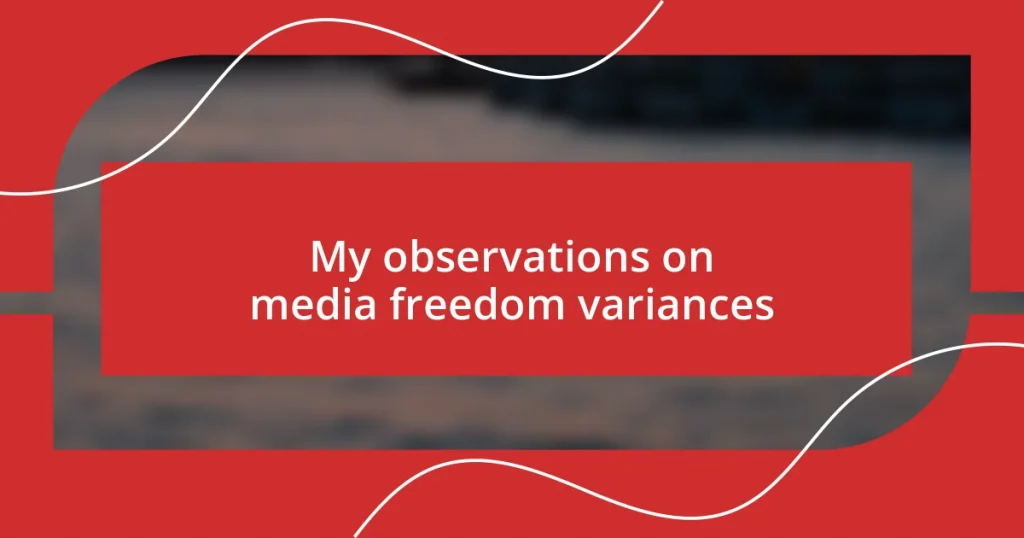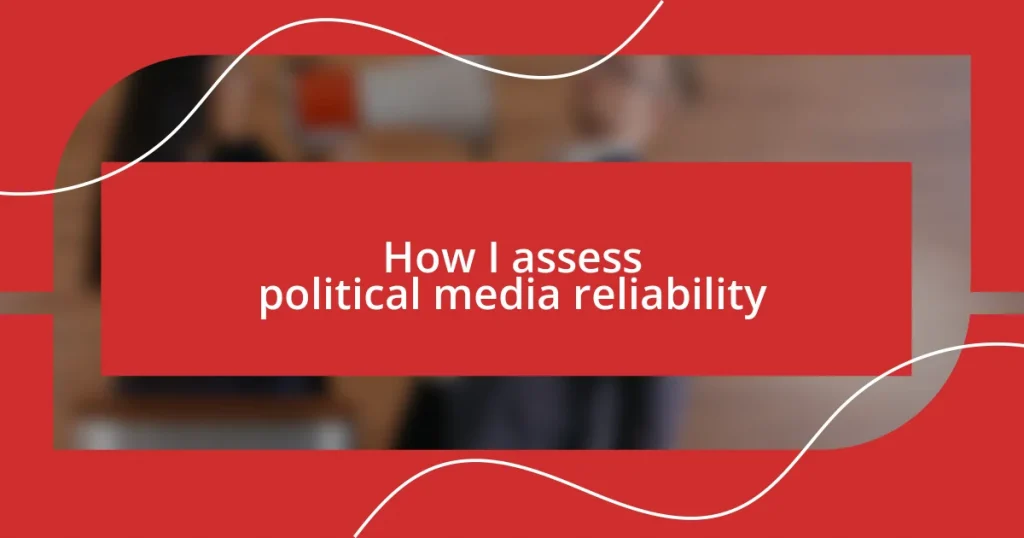Key takeaways:
- Understanding foreign politics involves grasping fundamental concepts like international trade, cultural context, and global interdependence.
- Key theories such as realism, liberalism, and constructivism provide different frameworks to analyze international relations and influence political decision-making.
- Immersion in local culture, studying biographies, and using reliable resources like online courses and podcasts enhance comprehension of foreign political systems and issues.
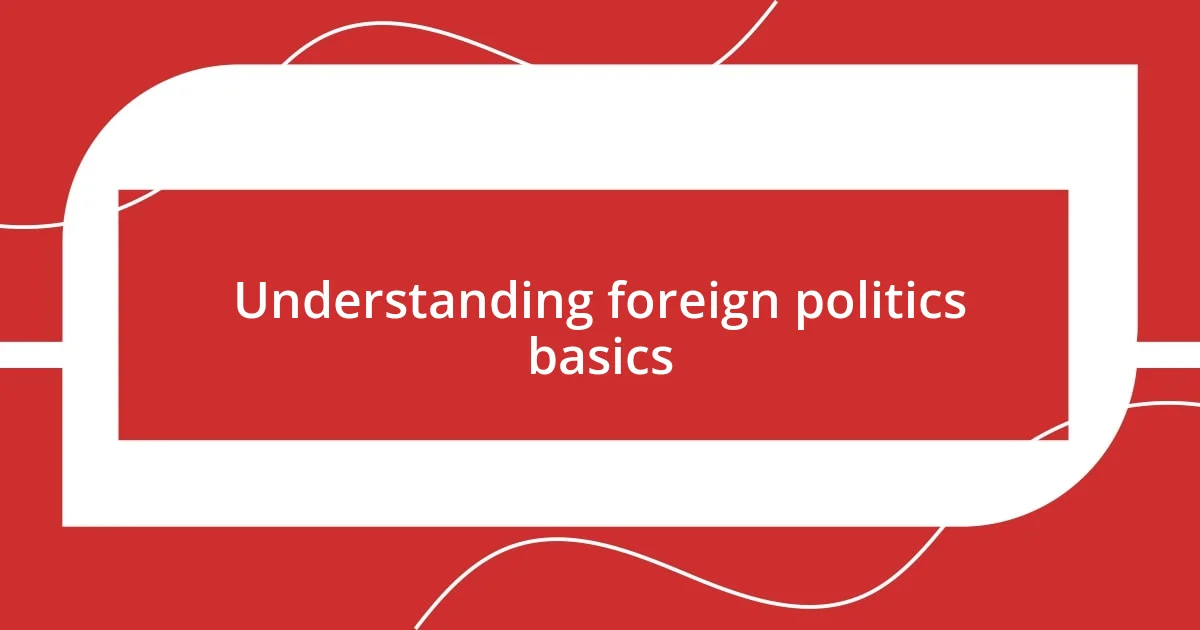
Understanding foreign politics basics
Understanding foreign politics requires grasping some fundamental concepts first. For instance, I recall a time when I was trying to comprehend the dynamics of international trade agreements. At first, it felt overwhelming—like decoding a foreign language. But realizing that these agreements are basically negotiations between countries helped simplify things for me. Have you ever tackled a complex topic and found that a simple analogy made all the difference?
One essential element to consider is the role of cultural context. I’ve seen how varying values and traditions can influence political decisions in different countries. Imagine a situation where a democratic approach clashes with an authoritarian regime. What do you think happens? It’s a reminder that behind every policy, there are layers of historical and cultural narratives shaping those decisions.
Lastly, it’s crucial to be mindful of global events and their interconnectedness. I often use news outlets not just to get updates but to see patterns in political behavior. Have you ever noticed how a single election can impact global markets? This interdependence highlights why understanding foreign politics isn’t just about one country; it’s about decoding a vast web of relationships.
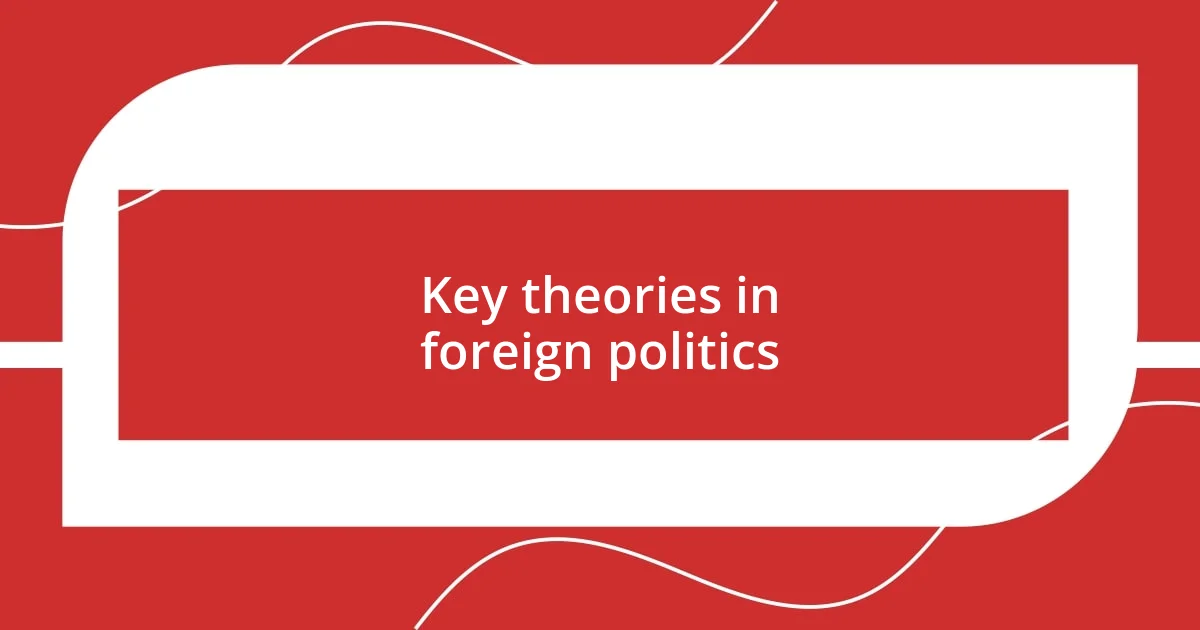
Key theories in foreign politics
When diving into the intricacies of foreign politics, I often find that theories such as realism and liberalism serve as foundational frameworks. Realism focuses on the competitive and conflictual side of international relations, emphasizing national interest and survival. I remember reading about how this theory played a critical role during the Cold War, shaping countries’ actions based on power dynamics. On the other hand, liberalism suggests that cooperation and interdependence can lead to more positive outcomes; I’ve seen this illustrated during peace negotiations, where mutual benefits were prioritized over conflicts.
Here are some key theories to consider:
- Realism: Emphasizes power, security, and national interest as central tenets in international relations.
- Liberalism: Advocates for cooperation, interdependence, and the role of international institutions in fostering peace.
- Constructivism: Suggests that social constructs and identities shape world politics, highlighting how perceptions influence state behaviors.
- Marxism: Focuses on the economic underpinnings of political structures, arguing that class struggle drives international conflicts.
- Feminist Theory: Examines how gender dynamics affect global politics, pushing for a more inclusive analysis beyond traditional power structures.
Exploring these theories not only enriches my understanding but also opens my eyes to the diverse motivations and backgrounds that influence international decisions. It’s fascinating how each theory reveals different lenses through which to view world events, making me appreciate the complexities of global interactions even more.
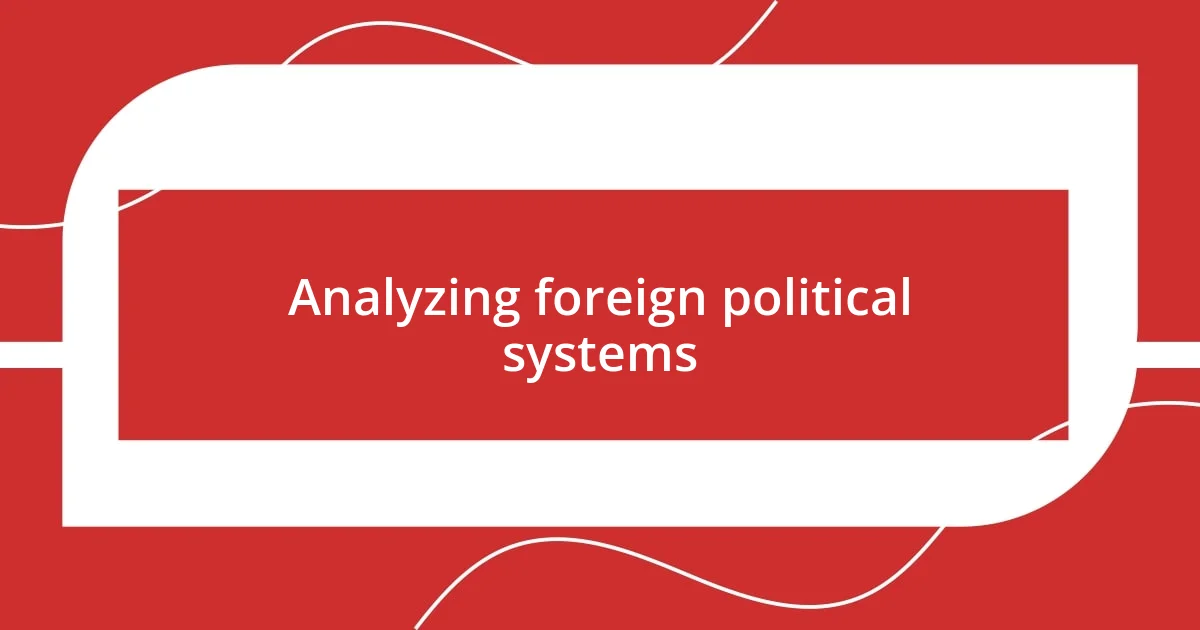
Analyzing foreign political systems
Analyzing foreign political systems requires a keen eye for details and an understanding of the broader context. I often find myself breaking down political entities into their core components: governance structure, political culture, and the influence of external factors. A memorable moment for me was when I used to compare the political system of a parliamentary democracy to a presidential system; it was eye-opening to see how power dynamics shifted in response to leadership styles. Have you ever tried mapping out how different systems address similar issues? It’s a revealing exercise.
I usually utilize comparative analysis as an effective tool in this journey. For instance, examining how two countries handle voter engagement can yield significant insights. One time, while looking into Scandinavian countries, I was struck by their high voter turnout rates compared to the U.S. This contrast highlights how systemic factors like accessibility and public trust influence civic participation. Have you considered how deeply ingrained political practices shape a nation’s identity?
Finally, I make a point to observe how historical events have sculpted political landscapes. Reflecting on the fall of the Berlin Wall sparked my curiosity about post-communist transitions and their varied outcomes across Eastern Europe. Each nation navigated its past with distinct political strategies, showing that understanding political systems is not just about the present but also about how histories intertwine with current governance. It’s this layered approach that I find most rewarding.
| Political System Components | Elements Influencing Dynamics |
|---|---|
| Governance Structure | Political Culture |
| External Factors | Historical Context |
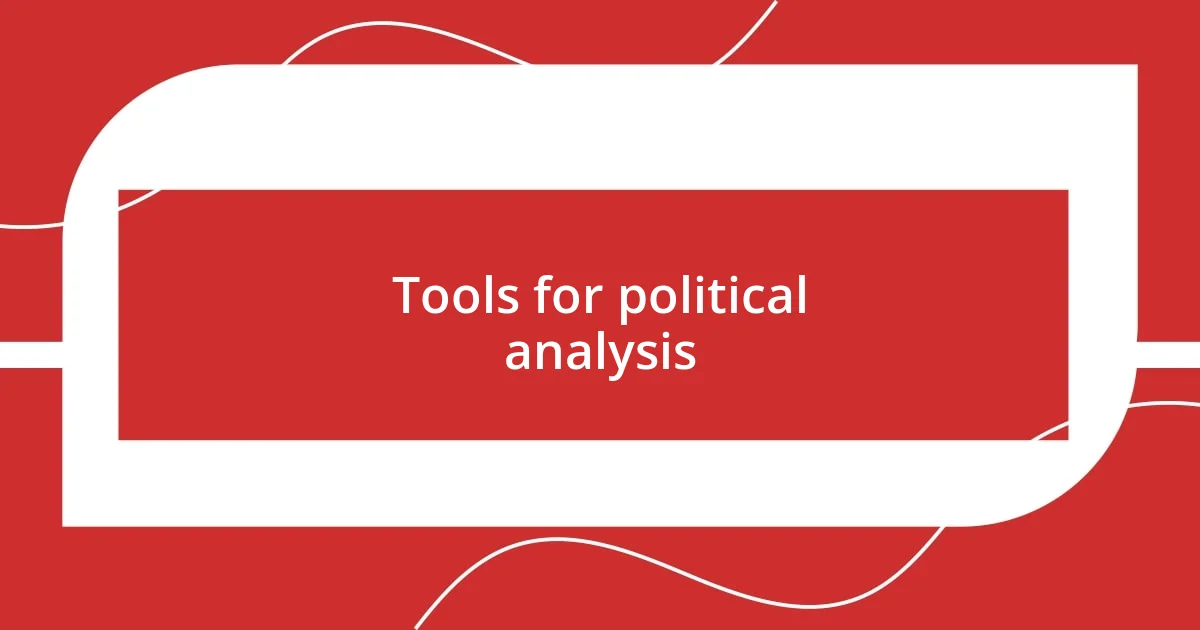
Tools for political analysis
Considering tools for political analysis, I find qualitative methods incredibly valuable. During my studies, I frequently turned to interviews and focus groups to grasp the motivations behind political actions. One particularly illuminating experience was conducting a series of interviews with local activists from different countries; their personal stories provided a depth of understanding that numbers alone could never convey. Have you ever noticed how a single personal narrative can shift your perspective on an entire issue?
On the quantitative side, I’ve often utilized data visualization tools to track trends and patterns in political behaviors. I remember the first time I used a software like Tableau; it transformed complex datasets into engaging visuals that helped me identify correlations I hadn’t noticed before. Seeing data come alive in this way opens new windows for understanding the sometimes opaque world of foreign politics. Have you considered how numbers can tell stories just as compelling as words?
Finally, staying updated with current events and consuming diverse media sources is integral to my analysis toolkit. I’ve learned that reading articles from both international and local perspectives reveals how national narratives can shape public opinion. For example, I often compare how local newspapers in different countries report on the same event; the differences can be stark. This practice not only sharpens my critical thinking but also allows me to appreciate the cultural contexts influencing political discourse. Isn’t it fascinating how the same event can be woven into vastly different narratives?
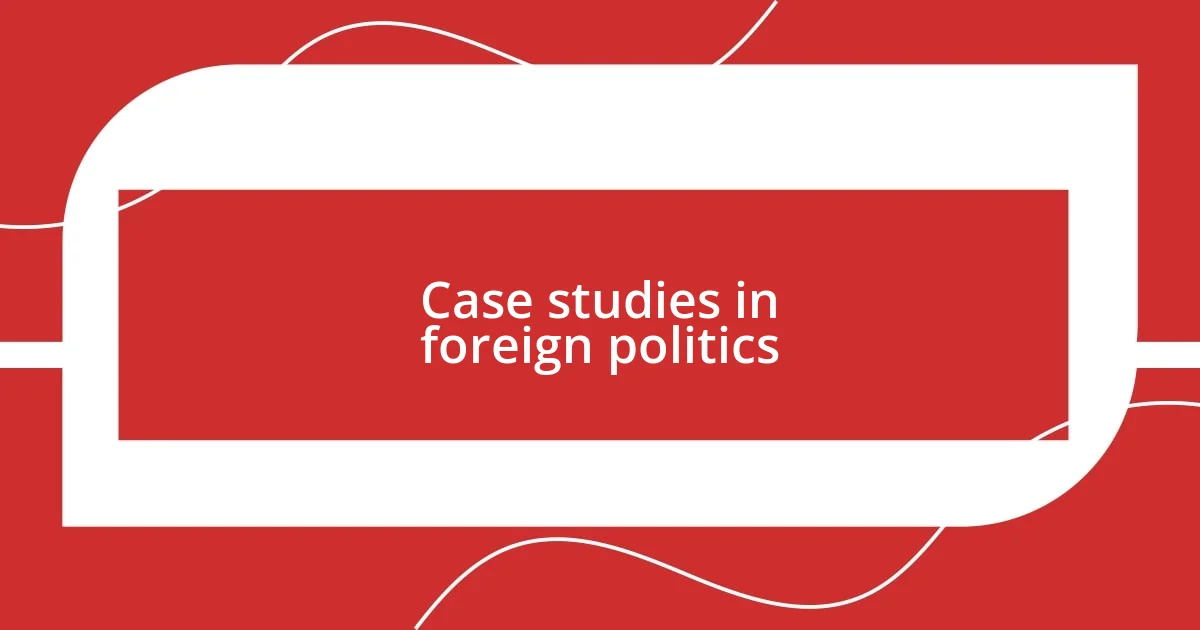
Case studies in foreign politics
Case studies serve as a vivid illustration of the complexities in foreign politics. I vividly recall my exploration of the Arab Spring as a turning point in several nations. In Tunisia, the peaceful transition seemed groundbreaking, yet in Egypt, the aftermath painted a more chaotic picture. What do you think accounts for these differing outcomes? From my view, it’s the local political landscape and civil society engagement that made all the difference.
Reflecting on the Brexit saga, I remember how the debates surrounding it highlighted the multifaceted nature of public sentiment. I often found myself diving into case studies of Scotland and Northern Ireland, realizing how regional identities played crucial roles in shaping political responses. Have you ever wondered how interconnected cultural narratives can impact voting behavior? It’s like piecing together a puzzle where each piece tells a story.
The case of Venezuela is another area where observation is critical. During my research, I felt a profound sense of empathy for the citizens grappling with the impact of economic collapse and authoritarianism. Analyzing how diverse political factions emerged and competed for power offered a sobering lesson in the fragility of democracy. Isn’t it striking how real struggles for power can be reflected in the lives of ordinary people? These case studies not only deepen my understanding but also resonate on a human level, reminding me that behind every political movement lie countless personal experiences.
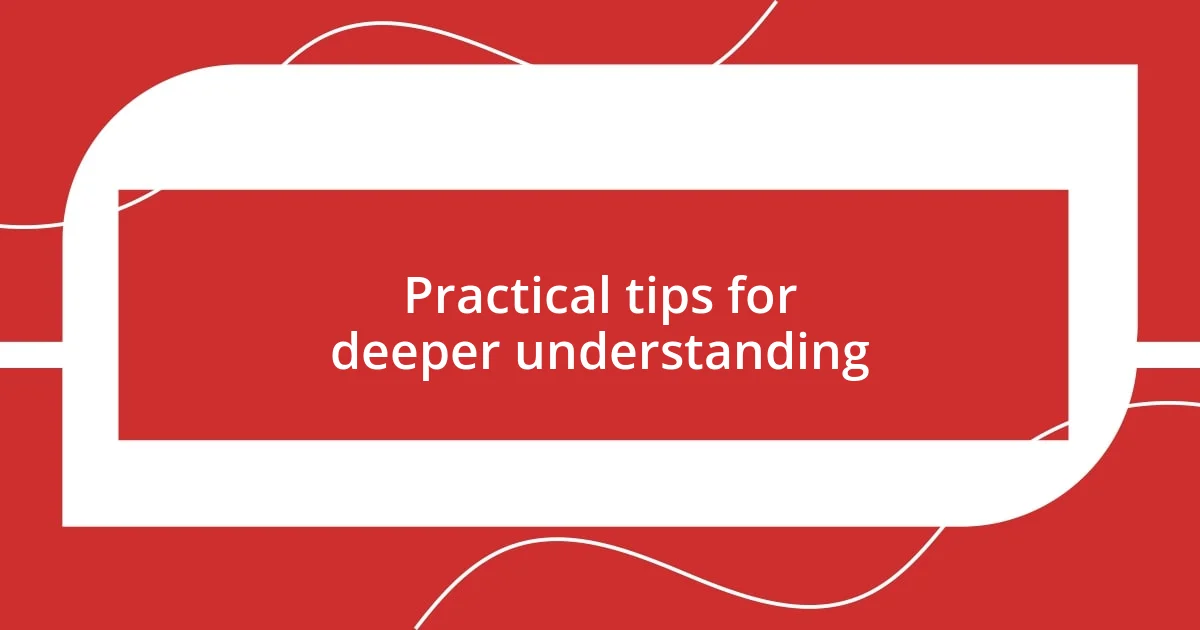
Practical tips for deeper understanding
In my journey of understanding foreign politics, I’ve found that immersing myself in the culture of a country can offer profound insights. I fondly recall a trip to South Korea where participating in local community events allowed me to experience firsthand the hopes and frustrations of the people. How often do we overlook the power of being in the moment? Engaging directly with citizens not only enhances my comprehension but also fosters empathy for their political struggles.
Another effective approach is to delve into political biographies and memoirs. I remember sitting down with a biography of Nelson Mandela, which transformed my understanding of South African politics. The narrative of his sacrifices and philosophical insights added layers of meaning that stark data couldn’t convey. Have you considered how someone’s life story can reshape your perception of an entire nation’s political journey? It’s like uncovering hidden threads that connect us all through shared humanity.
I also recommend participating in discussions or forums focused on foreign affairs. I distinctly recall joining an online debate where differing opinions on the Middle East conflict sparked intense dialogue. Those conversations challenged my preconceived notions and enriched my perspective. Isn’t it fascinating how a simple exchange of ideas can illuminate complexities we might not see alone? Engaging with diverse viewpoints often opens the door to deeper understanding and reflection.
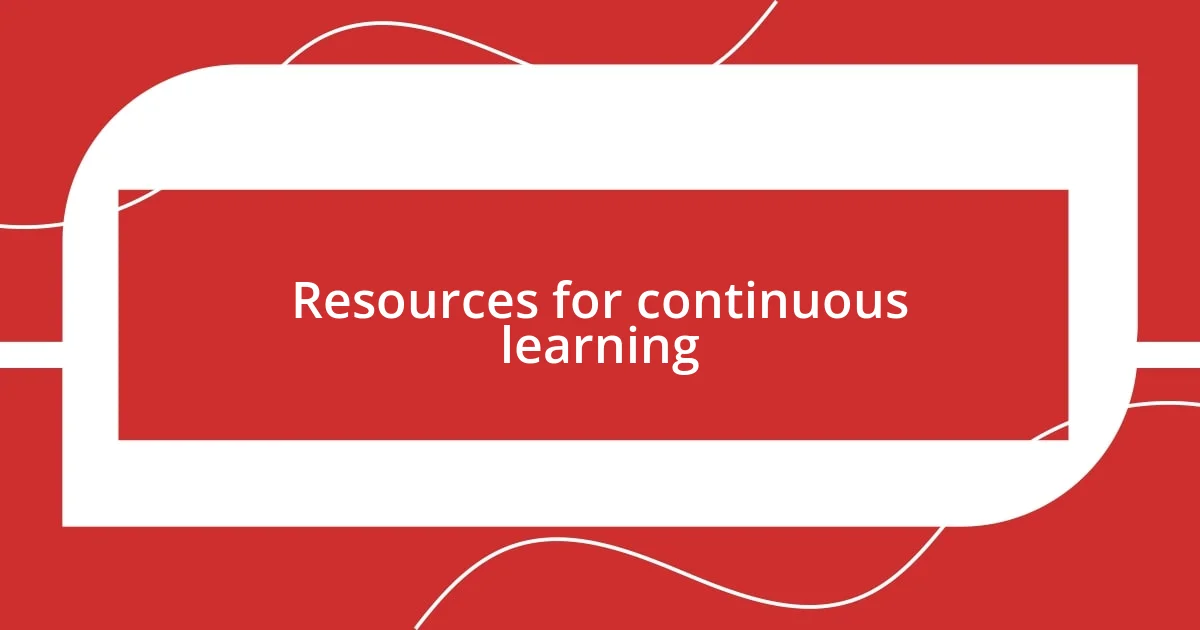
Resources for continuous learning
Accessing reliable resources is crucial for continuous learning in foreign politics. One of my go-to platforms is online course providers like Coursera or edX, where I recently completed a course on international relations. It was remarkable how much my perspective shifted after diving into scholarly lectures and discussions with fellow learners from around the globe. Have you ever found that a structured learning environment can significantly enhance your understanding of complex topics?
I also gravitate toward podcasts that explore foreign political landscapes. For instance, I vividly recall listening to a series focused on Eastern European politics. The hosts interviewed local experts who shared their thoughts and experiences, providing context that often feels absent in mainstream reports. This auditory experience reminded me of the value of personal stories in making sense of broader political narratives. Have you ever found yourself captivated by a compelling podcast that reshaped your views?
Books remain a steadfast resource in my learning journey. Recently, I dove into “Why Nations Fail” by Daron Acemoglu and James A. Robinson. It offered me a fresh lens through which to examine the interplay of politics and economics in various countries. The insights I gained made me eager to explore additional readings. Isn’t it fascinating how literature can unravel the threads that weave the fabric of a nation’s political identity?

